
Keiji Fujiwara was a Japanese actor and voice actor.
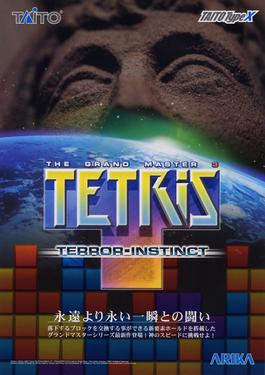
Tetris: The Grand Master is a series of puzzle arcade video games created by Arika.
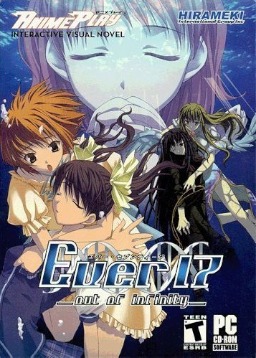
Ever 17: The Out of Infinity is a visual novel video game developed by KID. It is the second entry in the Infinity series; it is preceded by Never 7: The End of Infinity, and followed by Remember 11: The Age of Infinity, the spin-off 12Riven: The Psi-Climinal of Integral, and the reboot Code_18. It was originally released in Japan on August 29, 2002, for the PlayStation 2 and Dreamcast, and was later ported to Microsoft Windows, PlayStation Portable, Android, and iOS. A localization of the Microsoft Windows version was released by Hirameki International in North America in 2005.
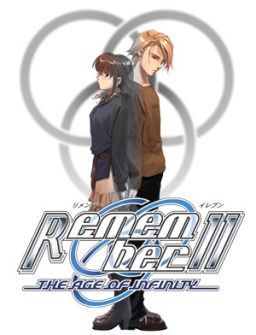
Remember 11: The Age of Infinity is a visual novel video game developed by KID. It was originally released on March 18, 2004 for the PlayStation 2, and has later been ported to Microsoft Windows, PlayStation Portable, iOS, and Android. The game is the third entry in the Infinity series; it is preceded by Never 7 and Ever 17, and followed by the spin-off 12Riven and the reboot Code_18.

Shin Megami Tensei: Imagine, formerly known as Megami Tensei Online: Imagine, was a massively multiplayer online role-playing game (MMORPG) for Windows. It is part of the Megami Tensei series, and was developed by CAVE and later on GungHo Online Entertainment under license from the series creator Atlus. Originally released in Japan in 2007, it was later released in North America in 2008, then in Europe in 2009. Imagine is set between Shin Megami Tensei and its sequel, in the aftermath of a war which devastated humanity and prompted the arrival of hostile demons split into two opposing factions: Law and Chaos. The player character, a Demon Buster, is tasked with interacting with and fighting the demons that infest post-apocalyptic Tokyo. The gameplay uses real-time combat in open environments similar to other MMORPGs, while carrying over the Megami Tensei series' recurring demon recruitment and fusion mechanics.
MT Framework is a game engine created by Capcom. "MT" stands for "Multi-Thread", "Meta Tools" and "Multi-Target". While initially MT Framework was intended to power 2006's Dead Rising and Lost Planet: Extreme Condition only, Capcom later decided for their internal development divisions to adopt it as their default engine. As a result, the vast majority of their internally developed video games for the PlayStation 3 and Xbox 360 platforms were created on it, including four new titles and three remastered ports of past titles in the Resident Evil series. The visuals of the first games built with the engine were well received, and MT Framework has also won a CEDEC award.

12Riven: The Psi-Climinal of Integral is a visual novel video game developed by KID, CyberFront, and SDR Project, and released on March 13, 2008, for the PlayStation 2 and April 16, 2009, for the PlayStation Portable. There is a regular edition, and a special edition which included the game's original soundtrack. KID are known for producing the Memories Off series, and the Infinity series which includes Never 7: The End of Infinity, Ever 17: The Out of Infinity, and Remember 11: The Age of Infinity. When KID declared bankruptcy in November 2006, production on the game was halted until CyberFront took over and resumed production.
Tony Taka, also referred to as just Tony, is a Japanese manga artist, video game artist and character designer.

Nier is an action role-playing video game developed by Cavia and published in 2010 by Square Enix for the PlayStation 3 and Xbox 360. In Japan, the game was released as Nier Replicant for the PlayStation 3 with a younger main character, while an alternative version titled Nier Gestalt with an older main character was released for the Xbox 360; Gestalt was released outside of Japan as Nier for both platforms. A remaster of the Japanese version, Nier Replicant ver.1.22474487139... was released for PlayStation 4, Xbox One, and Windows in 2021.
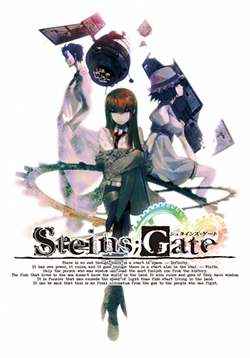
Steins;Gate is a 2009 science fiction visual novel game developed by 5pb. and Nitroplus. It is the second game in the Science Adventure series, following Chaos;Head. The story follows a group of students as they discover and develop technology that gives them the means to change the past. The gameplay in Steins;Gate includes branching scenarios with courses of interaction.
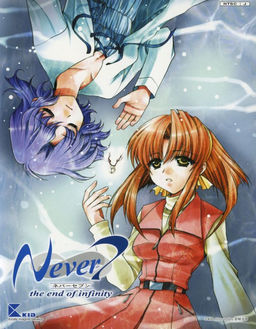
Never 7: The End of Infinity is a visual novel video game developed by KID. It was originally published by KID on March 23, 2000, for the PlayStation as Infinity, and has since been released on multiple platforms. It is the first entry in the Infinity series, and is followed by Ever 17, Remember 11, the spin-off 12Riven, and the reboot Code_18.

Playism is a Japanese independent video game publisher operated by Active Gaming Media. Playism started as a digital distribution platform for PC games in May 2011.

Science Adventure, commonly shortened to SciADV, is a multimedia series consisting of interconnected science fiction stories created by Mages, initially in collaboration with Nitroplus. The main entries mostly take the form of visual novel video games.

eXceed is a series of Japanese shoot 'em up video games developed by the dōjin circle Tennen-sozai (天然素材). The first game, eXceed, was released in 2005, and the latest game, eXceed3rd JADE PENETRATE BLACK PACKAGE, was released in 2009. The series is localized into English and published by Nyu Media.

Spike Chunsoft Co., Ltd. is a Japanese video game development and localization company specializing in role-playing video games, visual novels and adventure games. The company was founded in 1984 as Chunsoft Co., Ltd. and merged with Spike in 2012. It is owned by Dwango.

Infinity is a series of visual novel video games mainly developed by KID. The first game in the series, Never 7: The End of Infinity, was originally released as Infinity for PlayStation in 2000, and was later ported to other platforms. Since then, four more games have been developed, as well as a remake of the second game. The first three games were directed by Takumi Nakazawa, and the first four were planned and written by Kotaro Uchikoshi and composed for by Takeshi Abo. The fifth was written by the otome writing group Run & Gun, and featured sound production by the band Milktub. Alongside Memories Off, Infinity was KID's flagship series.

JoJo's Bizarre Adventure: Diamond Records is a 3D action video game developed and published by Bandai Namco Entertainment for iOS and Android, and was released on February 20, 2017 in Japan. It has since received several updates, including a major 2018 update that changed the subtitle to Diamond Records Reversal and added content from Golden Wind, the fifth part of the series.

Wonder Flick was a role-playing video game developed and published by Level-5, which was released for iOS and Android devices. Versions for the Wii U, PlayStation Vita, PlayStation 3, PlayStation 4, and Xbox One were planned, but these were eventually cancelled upon the shutdown of the mobile version in 2015.

7'scarlet is an otome visual novel video game developed by Otomate and Toybox Inc. It was released for the PlayStation Vita by Idea Factory in 2016 in Japan and by Aksys Games in 2018 in North America and Europe. The player reads through the story, making choices that determine its direction, and takes the role of college student Ichiko Hanamaki, who goes to the town of Okunezato to investigate the disappearance of her brother together with her friend Hino Kagutsuchi.

Yo-kai Sangokushi is a turn-based tactical role-playing game developed by Koei Tecmo and published by Level-5 for the Nintendo 3DS in 2016 exclusively in Japan. The game is a collaboration between Koei Tecmo's video game series Romance of the Three Kingdoms and Level-5's multi-media franchise Yo-kai Watch and sees the player controlling military commanders who aim to unify the world.


















